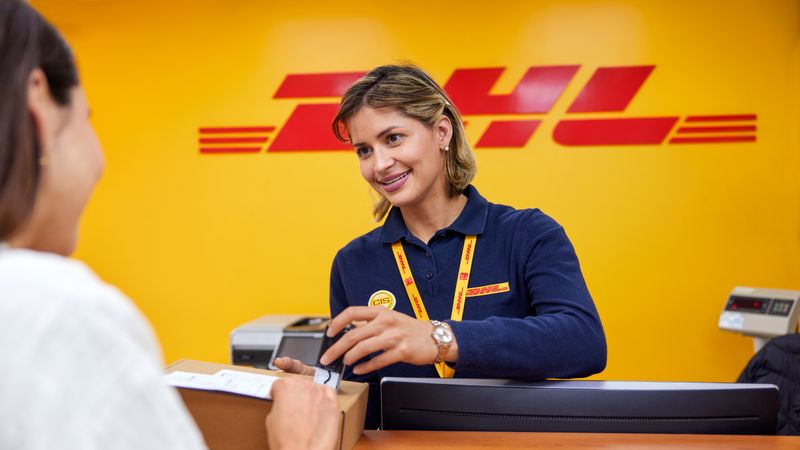In 2023, Pakistan’s exports totaled $27.724 billion, while imports reached $55.198 billion, highlighting the country's growing involvement in global trade. However, international trade comes with a host of complexities, including customs duty and import tax regulations, tariffs, and the division of responsibilities between trading partners.1 To simplify these transactions and minimize misunderstandings, businesses rely on The International Chamber of Commerce Incoterms (or Incoterms ), a set of standardized international trade terms.
Understanding Incoterms is particularly important for Pakistan's trade economy, given the country’s expanding import and export industries. With exports growing at a rate of 9.9% annually, local businesses must be well-versed in these terms to remain competitive, avoid costly delays, and ensure smooth transactions in sectors like textiles, foodstuffs, and electronics.
What are Incoterms?
Incoterms have a long history of simplifying international trade, having been first introduced in 1936 to clarify the roles of buyers and sellers in cross-border transactions.2 Pakistan adopted them as its trade activities grew, establishing a clear division of responsibilities related to shipping, insurance, and customs duties.
Categories of Incoterms
Incoterms are divided into two main categories based on the mode of shipping—those that apply to any mode of transport and those that are specific to sea and inland waterway transport.
Incoterms for any mode of transport includes terms that are versatile and can be used regardless of whether the goods are shipped by air, road, rail, or sea. They are widely applicable, making them particularly useful for businesses that rely on multiple transportation methods. For Pakistan, a country that exports a range of products such as textiles and electronics, these Incoterms provide clarity in transactions and ensure smooth logistics across its primary trade routes.
Meanwhile, Incoterms for sea and inland waterways are specifically used when goods are transported via water routes. Given that a significant portion of Pakistan's international trade occurs via maritime routes, particularly for bulk commodities like textiles and rice, these Incoterms play a crucial role in facilitating transactions.
The 11 Incoterms explained
So what are the 11 Incoterms used throughout the global economy today? These standardized terms help define the specific responsibilities between buyers and sellers, ensuring clarity in global transactions by outlining who bears the costs and risks at various stages of the shipping process.3
Let’s take a closer look at each of these examples of Incoterms used in international trade:
- EXW (Ex Works)
Under this term, the seller’s responsibility ends when the goods are made available at their premises. The buyer must handle everything from transportation to export duties, making EXW ideal for buyers who prefer to have full control over logistics from the start.
- FCA (Free Carrier)
With FCA, the seller hands over the goods to a carrier or another party chosen by the buyer at a specified place. This Incoterm works well for shipments involving multiple forms of transportation, such as air cargo shipping or road freight.
- CPT (Carriage Paid To)
In this case, the seller arranges and pays for the transportation of goods to a specified destination, but the buyer assumes the risk once the goods are handed over to the first carrier. This term is often used in standard international shipping when buyers want the seller to handle the initial logistics.
- CIP (Carriage and Insurance Paid To)
Similar to CPT, CIP requires the seller to also provide insurance for the goods during transit. This term is a popular choice in scenarios where buyers want added protection, as the seller secures insurance up to the destination.
- DAP (Delivered at Place)
Here, the seller is responsible for delivering the goods to the buyer’s specified location, excluding unloading. This Incoterm simplifies the process for buyers who prefer goods to be transported all the way to their facility, but leaves unloading to them.
- DPU (Delivered at Place Unloaded)
Unlike DAP, DPU includes the responsibility of unloading the goods at the destination. It’s particularly useful for buyers who may not have the infrastructure to unload shipments themselves.
- DDP (Delivered Duty Paid)
This term places maximum responsibility on the seller, who not only delivers the goods to the buyer’s location but also handles all customs duties and taxes. DDP is ideal for buyers who want a worry-free shipping experience with all costs covered upfront.
- FAS (Free Alongside Ship)
FAS requires the seller to deliver the goods to the port and place them alongside the vessel for loading. From this point, the buyer is responsible for loading the goods and covering all further risks and costs, making it common in bulk maritime trades.
- FOB (Free on Board)
The seller's responsibility extends to loading the goods onto the vessel. Once the goods are on board, the buyer assumes all risks. FOB is one of the most common terms used in overseas shipping, especially for sea freight.
- CFR (Cost and Freight)
The seller arranges and pays for transportation to the destination port, but the risk transfers to the buyer once the goods are loaded onto the ship. This is often used in bulk shipments but requires the buyer to manage risks from the moment the goods are onboard.
- CIF (Cost, Insurance, and Freight)
Like CFR, but with the added requirement that the seller also provides insurance for the shipment. CIF is frequently chosen in overseas shipping where both parties want extra assurance that the goods are covered during transport.
Why choosing DHL Express PK for Incoterms is the right move

Knowing which Incoterm is best for buyers or sellers is crucial for Pakistani businesses to navigate international trade efficiently. To reduce risks and avoid common mistakes like misaligning Incoterms, traders should look into factors to consider when choosing a courier company in Pakistan.
Partnering with logistics partners like DHL Express PK can help simplify this process. Our expertise in overseas shipping and reliable solutions ensure that your goods reach their destination smoothly, especially during the critical last mile of delivery.
By opening a DHL Express business account, you can streamline your logistics and benefit from their comprehensive shipping solutions tailored to your needs.









